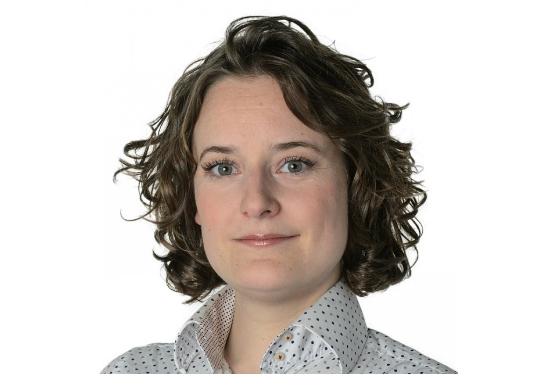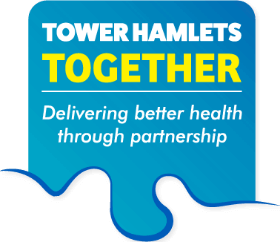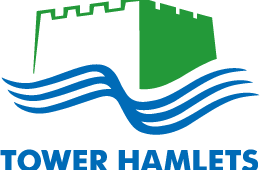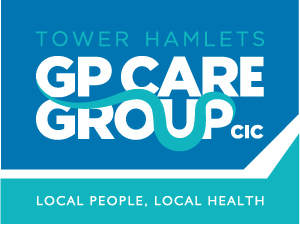Amy's Monthly Briefing - April 2021
The borough’s vision of a seamless health and care experience for its citizens.

At April's THT Board we had a strong focus on engagement, hearing from Deputy Young Mayor Vivian Akinremi on young people's priorities and from Healthwatch on community insights
At April's THT Board we had a strong focus on engagement, hearing from Deputy Young Mayor Vivian Akinremi on young people's priorities and from Healthwatch on community insights. Building on previous discussions on systemic racism, we brought recommendations from the Black, Asian and Minority Ethnic Inequalities Commission to the Board.
Anti-racist leadership will be a major priority for THT over the coming months and I'm thrilled we've secured the charity brap to support us on this journey, facilitating four sessions to guide and challenge us as individual and collective system leaders. This work will be further strengthened by the revamped Associate Lay Member for Patient and Public Engagement, whose remit now includes equality and diversity, sustainability and social value - we're thrilled that Julia Slay was successful in open recruitment to take on this role.
At the Board meeting, Vivian described her role as Deputy Young Mayor and Young Cabinet Member for Mental Health as representing young voices and avoiding older people making decisions based on the wrong assumptions. She reflected on her personal experience of schools being shut down, which "got real very quickly" when she realised adults didn't even have answers on Covid-19, which was scary and daunting. On the plus side, her school was really helpful and teachers were patient and compassionate.
Vivian set out three priorities based on engagement with young people: period poverty, mental health and obesity. Period poverty has sky-rocketed due to youth centres being closed, so they are campaigning for schools to provide free sanitary products and increase education. Mental health needs have risen but many young people report poor perceptions of CAMHS and have struggled to access help. On obesity, they are encouraging young people to walk 10,000 steps per day, given the positive physical, mental and environmental impacts.
Board members discussed how some places have repositioned the identity of CAMHS, the vital role of peer support and the need to involve young people at the start of designing a whole-system approach to mental health - not least as both complex mental health issues and children in crisis beds have increased. We also discussed young people's attitudes to COVID vaccines which Vivian reflected was mixed - lots of natural curiosity and scepticism, but also a recognition we need them to get out of the restrictions.
As one of the racial inequalities Commissioners, Vivian felt this work was forward thinking by the council, given the lack of action or complete denial of structural racism in other areas. In response to the recommendations, Members were keen to drive action on representation in the health and care workforce, with a partnership-wide, systematic programme to engage with schools coupled with interrogation of ethnic diversity at senior levels - in line with the THT workforce strategy. Other priority areas were stronger community listening to target future action better, digital exclusion, challenging hostile environment policies, and understanding the impact of intersectionality. The Board agreed to identify tangible collective actions that we will commit to publicly as THT and use a QI approach to drive forward.
Healthwatch presented their analysis of community insights on people's experience of health and care services throughout 2020. Overall, people gave positive feedback on clinical treatment, nursing, quality of care and staff attitudes. Areas with majority negative feedback were access, information, reception services, transport and discharge. Qualitative feedback showed the impact of cancellations, delays and uncertainty: "It's not the waiting that will kill you, it's the not knowing." Loneliness was also a strong theme.
Board members were impressed by this repository of robust, rich and granular data. We reflected that given the report spans the pandemic, when services were stopped overnight, the picture is fairly positive. With waiting lists now very high, the feedback is timely in thinking about messaging to explain prioritisation on clinical need rather than length of wait - and will similarly help shape communications on social care access and eligibility. We discussed making the data readily available to clinical teams and confirmed Healthwatch will provide community insights for THT Board linked to the user voice theme each month.
Finally, the Local Delivery Board report confirmed their 6 month priorities are vaccine rollout, multi-disciplinary teams and care coordination, discharge pathway and long COVID. 12 month priorities are children and young people's mental health, home care, autistic spectrum disorder and end of life care. We had a positive update on vaccines, with good progress across the Royal London, care homes and the community. Partnership working with faith and community groups has helped address some of the ethnic disparities, but we need to do more to build trust and uptake among our Black communities.








